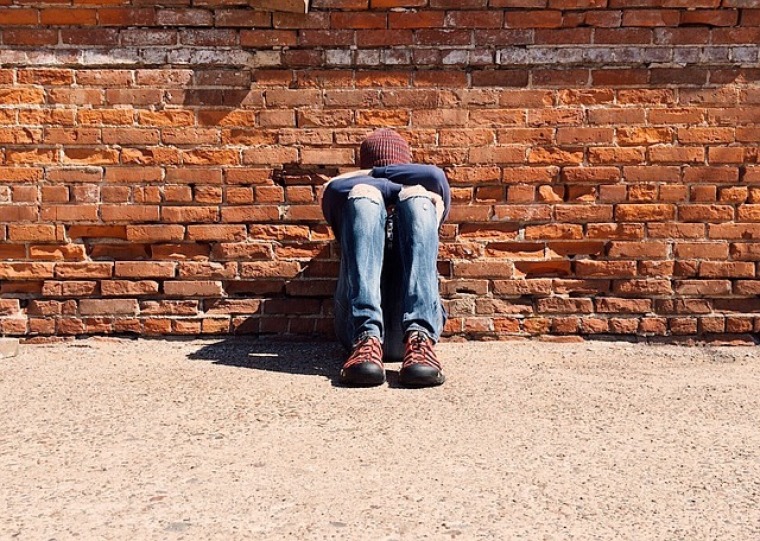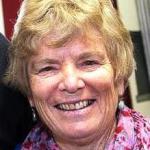
“No, I couldn’t live there,” commented a single woman after she returned from an overseas country. “There’s razor wire on the top of all the fences; even though the families live in a compound, when they go to visit someone else in their compound they have to lock their doors. There are security guards on duty for 12 hours each night, from dusk to dawn, just for their compound. You can’t just go for a walk along the street on your own.”
That’s extreme, I thought. Then I remembered someone I had chatted to, just recently. I had noticed his accent, so I asked him where he was from. South Africa, came the reply. “We came to NZ over 20 years ago. We left because of the lawlessness. We had to live such restricted lives there.”
Living without restrictions on our movements
I couldn’t imagine a NZ like that. Having grown up in a rural area in the South Island where my siblings and I were free to roam as children, where we didn’t lock our doors when we went out, and we had biked wherever we needed to go, it was hard to imagine living any other way. Yes, I had adjusted when living in the city; having to lock doors and cars, being careful of belongings, etc. But I don’t look with suspicion at any strangers or feel I have to avoid certain areas – during daylight anyway.
I could understand older people feeling more vulnerable. I remembered our tall, strapping son, telling me that one day when he was walking down to his after-school job at the local petrol station, he noticed that an older woman had crossed to the other side of the road when she saw him coming, passed him by, and then had crossed back again. My son had wanted to go to her and say, “Look, it’s ok, I’m not a threat. I wouldn’t dream of hurting you.” But he knew that wouldn’t work; all she would have seen is a menacing youth in a hoodie approaching her.
How many people now live in fear?
But now I am wondering how many more people, and not only the elderly, are increasingly living in fear. I read about people afraid to catch their local bus, to go shopping on their own, to leave their properties, or to answer their doors. Young people too have experienced incidents where they have been abused, taunted, or even physically attacked and robbed; they are also living with fear. Parents are fearful for their children, so increasingly they are taking their children to school, and to other activities.
Bullying is rife, fuelled by social media platforms. We’re told children are increasingly anxious and mental health issues have increased. Other factors also contribute – and the outcome is an increasingly anxious and troubled society.
The world I grew up in, of freedom from fear and the freedom to come and go without restriction, has been slowly disappearing in the cities. In recent months, there has been a noticeable increase in youth offending – a group of about 80 young people (some very young) are brazenly carrying out ram raids using stolen cars, carrying out robberies and assaults, seemingly without fear of being caught, and recording each incident on their phones for the benefit of their in-group. Why? Because it’s a cool thing to do. But it leaves a legacy of fear and anxiety for shop-owners, customers, and others.
The erosion of goodwill
NZ society has in the past been marked by a general sense of goodwill. Our small population, shared community projects, basic Christian values that see every person as of equal value, our sense of fair play, and the influence of Maoritanga with its emphasis on whanau and belonging together, have all contributed historically to an egalitarian society marked by goodwill. The expression of goodwill towards others has been seen at its best during emergencies – for example, after the mosque shootings, following the Christchurch earthquakes, and during recent flooding; these situations have often brought out the best in our communities. People help and are helped by each other.
But our sense of goodwill is being gradually eroded. Road rage, online negativity and vitriol as politics become increasingly polarised, verbal abuse in public, in schools, and in work places; nasty incidents on public transport, overt (and covert) incidences of racism - each negative incident adds to a growing climate of fear, to a lack of trust in each other.
Have we begun a downward slide?
There are many factors that contribute to a breakdown of goodwill in society – and we are still a long way off from the lifestyle described in the countries referred to at the beginning of this article – but it is worth asking, have we begun the downward slide to becoming a country of such lawlessness that ordinary people will eventually have to learn to live restricted lives in gated communities? How can we stop the slide? And crucially, what is the role of the church? How can our church communities demonstrate goodwill in their neighbourhoods in ways that enhance our society?
Even in Liz Hay’s small mountain village, it’s now necessary to lock doors, after break-ins during recent years, particularly of building sites. But in the adjacent reserve, her grandchildren can build huts from branches, just as she did in her childhood. Houses don’t have fences around them, which helps to foster community, and sharing in regular activities together also enhances the village vibe.

Liz Hay is appalled by the amount of vitriol that is now being slung at any Christian who dares to comment on an issue raised in the media. Christianity is not only seen as an aberration, but is being increasingly regarded by some as a scourge to be removed from society. With the growing malevolence being expressed towards the church, it is no wonder that even going on to church property can be a daunting experience.
The balm of the natural world, and friendship with genuine and real people, that Liz experiences in her small village in the mountains is a wonderful antidote to anti-Christian comments.